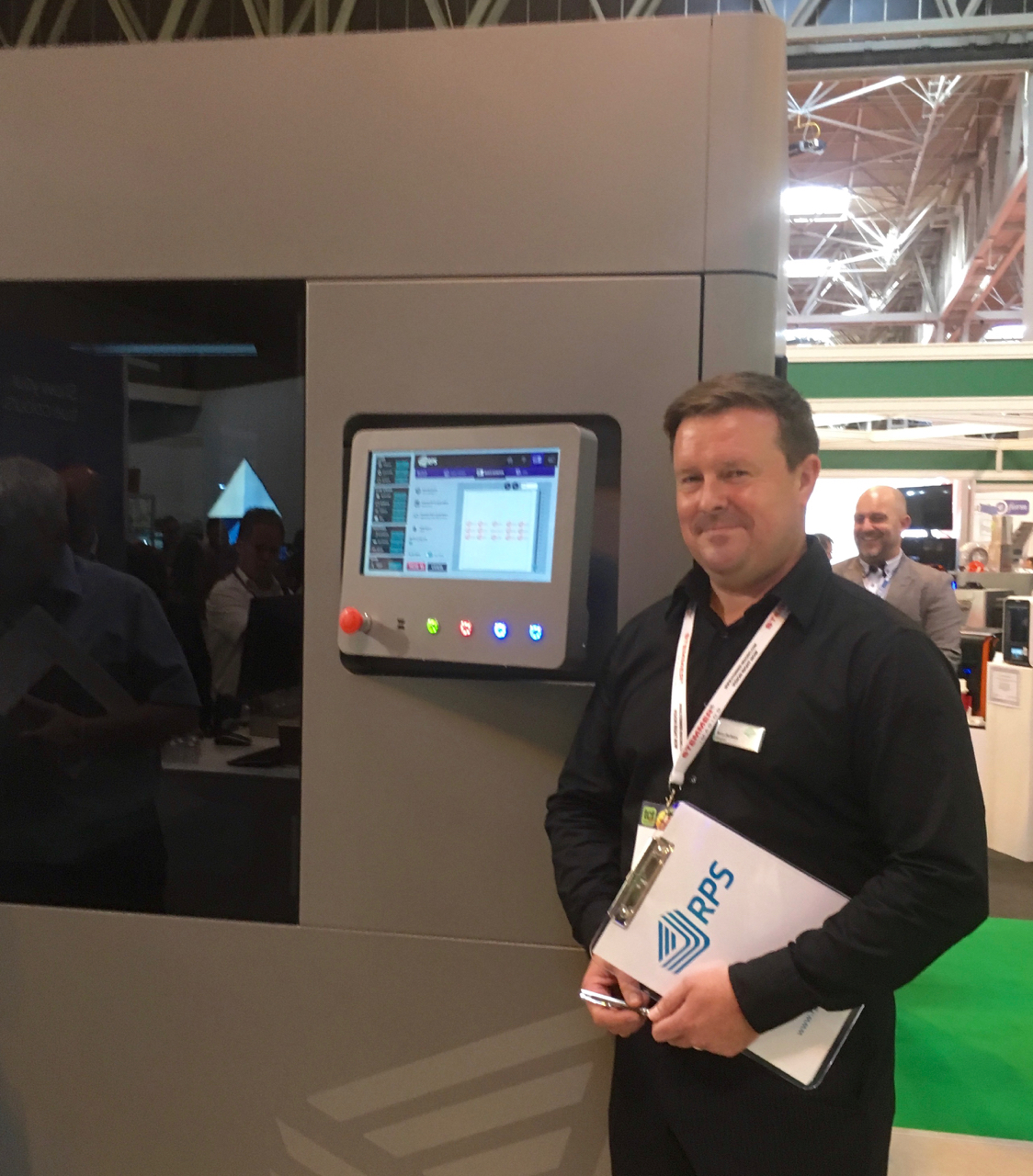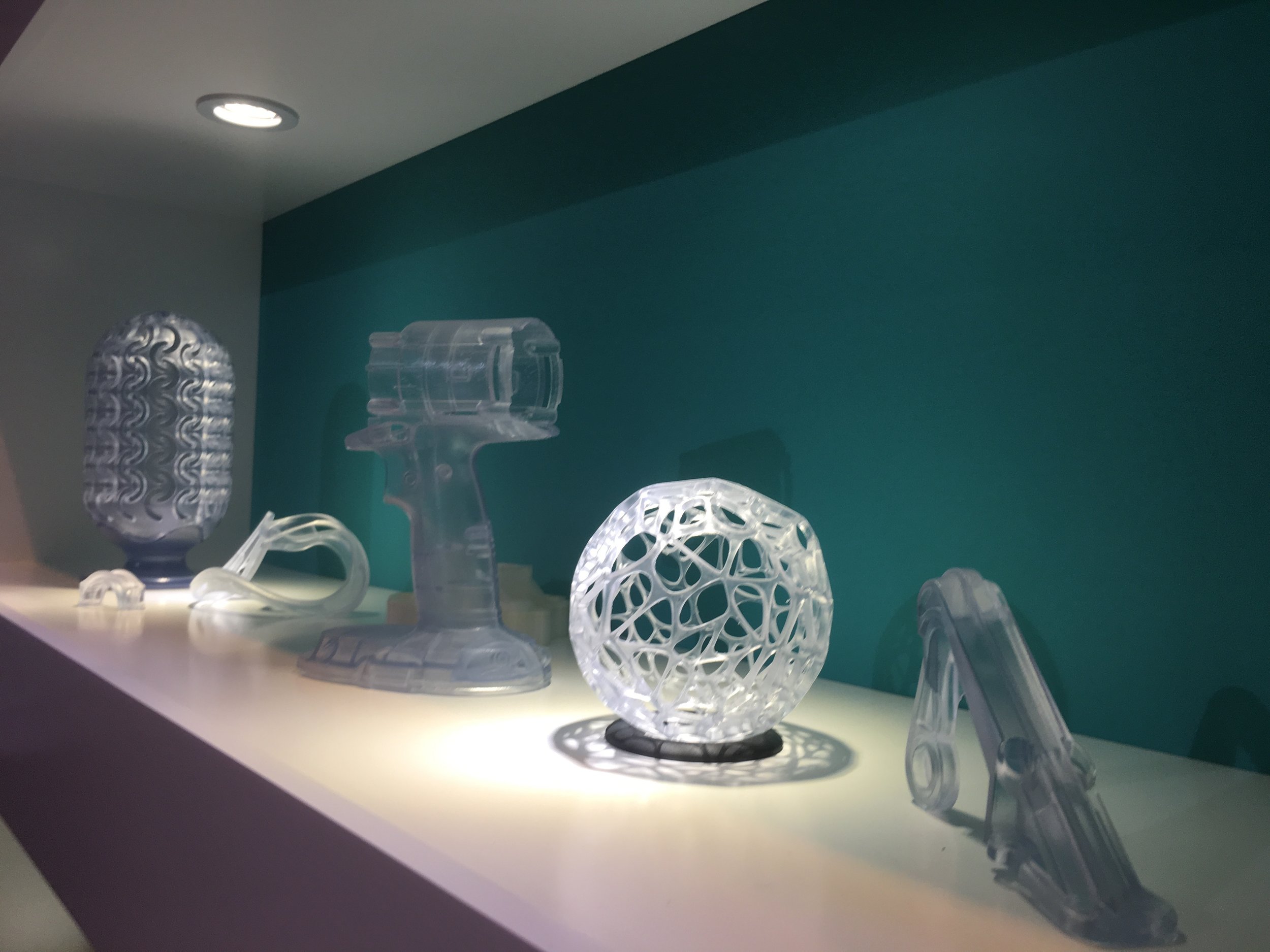
The TCT Show in Birmingham UK, which took place last week, saw the global launch of a brand new stereolithography (SL) 3D printing process platform. The NEOS800 machine was being exhibited by RP Support (RPS), the UK company that has developed and is manufacturing the machine in the UK.
This platform has been in development for four years and a closely guarded secret by the engineers at RPS. I caught up with Rory Jackson, one of RPS’ Directors to find out more about the machine, beyond the impressive specs that were being handed out at the show. On the show floor, the machine was garnering a great deal of attention. Rory told me he thought this was largely down to a couple of facts, notably that the machine was made in the UK using high quality British and German components and that the NEOS800 operates an open resin system, meaning that users have total freedom when it comes to material selection. While this latter fact is not unprecedented, it is unusual for a machine of this size and scope. So, to be clear the NEOS800 is not competing with the FormLabs independent desktop brand of professional SL, this is a more industrial grade of machine with a maximum build platform of 800x800x600 mm, when using a full vat of resin material. The size of the machine itself is not inconsiderable at 1350x1630x2300 mm.
Indeed this grade of stereolithography is where the RPS guys have long excelled. The company was historically set up to provide technical and support services for SL machines in the UK and across the continent. Subsequently the company also became a reseller for key hardware and material additive technology brands. The team behind RPS offers breadth and depth in every area of the technology and it is this knowledge that has gone into the development of the NEOS800. After years of meeting the challenges and the limitations of SL 3D printing (as well as the benefits and advantages, obviously) the RPS team has been able to leverage this knowledge when developing the NEOS800, and as a result the platform boasts excellent sidewall quality, variable laser beam size, a built-in camera, a removable and easily cleanable recoater blade as well as intuitive software and an in-built UPS system.

Talking to Rory about when the machine would start shipping, as I asked the question my assumption, based on recent trends generated by some of the bigger players in the 3D printing industry, was that it would be this time next year at the earliest. Not so. Rory told me it would start shipping in the UK and Europe in January. A machine has been operating within a production environment for the last 12 months, according to Rory, with very positive results that have been qualified. As of now, five machines have been built and these are also undergoing stringent tests, but again, “the results are very positive.” So, you know that they kind of have to say that, and there were no specific details, but confidence does come from the knowledge that there are only a few months between launch and shipping. Definite bonus points for that from me. Also, top notch servicing is a given.
Pricing for the platform itself has not been set in stone yet, but when pushed, Rory said he believes it will come out in the region of £325k. In terms of add-ons, the company offers a manual off-load trolley and a post-cure oven — the latter of which is essential for the SL process and the post-processing it demands to harden the resin materials.
When I asked about IP, expecting to be shut down, Rory was really open with me. “We’ve been really careful, and we have secured freedom to operate. We also have quite a lot of IP on this ourselves and have been through the patenting process.” Again, no details here, but that would be a push too far! I do know my limits.
It is great to see another UK manufacturer emerging in the sector and it will be interesting to see how 2017 progresses for RPS once sales get underway.
Via RPS

